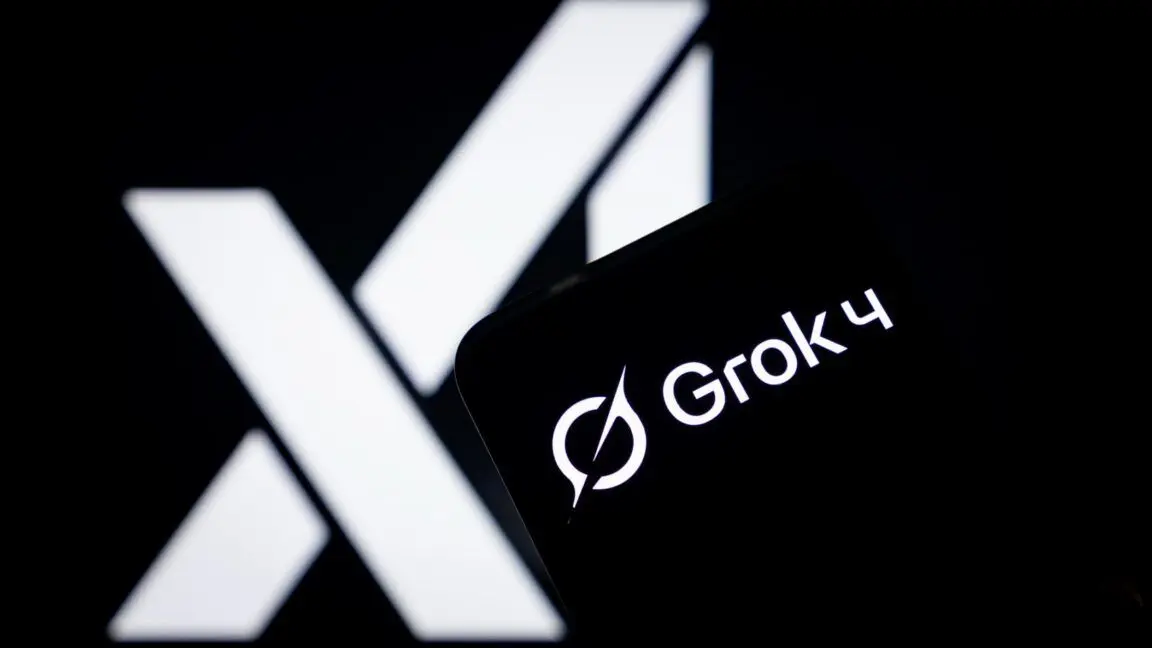AI-Generated Video Revolutionizes Creative Industry, Sparking Excitement and Concern
2 Sources
2 Sources
[1]
AI video becomes more convincing, rattling creative industry
New York (AFP) - Gone are the days of six-fingered hands or distorted faces -- AI-generated video is becoming increasingly convincing, attracting Hollywood, artists, and advertisers, while shaking the foundations of the creative industry. To measure the progress of AI video, you need only look at Will Smith eating spaghetti. Since 2023, this unlikely sequence -- entirely fabricated -- has become a technological benchmark for the industry. Two years ago, the actor appeared blurry, his eyes too far apart, his forehead exaggeratedly protruding, his movements jerky, and the spaghetti didn't even reach his mouth. The version published a few weeks ago by a user of Google's Veo 3 platform showed no apparent flaws whatsoever. "Every week, sometimes every day, a different one comes out that's even more stunning than the next," said Elizabeth Strickler, a professor at Georgia State University. Between Luma Labs' Dream Machine launched in June 2024, OpenAI's Sora in December, Runway AI's Gen-4 in March 2025, and Veo 3 in May, the sector has crossed several milestones in just a few months. Runway has signed deals with Lionsgate studio and AMC Networks television group. Lionsgate vice president Michael Burns told New York Magazine about the possibility of using artificial intelligence to generate animated, family-friendly versions from films like the "John Wick" or "Hunger Games" franchises, rather than creating entirely new projects. "Some use it for storyboarding or previsualization" -- steps that come before filming -- "others for visual effects or inserts," said Jamie Umpherson, Runway's creative director. Burns gave the example of a script for which Lionsgate has to decide whether to shoot a scene or not. To help make that decision, they can now create a 10-second clip "with 10,000 soldiers in a snowstorm." That kind of pre-visualization would have cost millions before. In October, the first AI feature film was released -- "Where the Robots Grow" -- an animated film without anything resembling live action footage. For Alejandro Matamala Ortiz, Runway's co-founder, an AI-generated feature film is not the end goal, but a way of demonstrating to a production team that "this is possible." In March, startup Staircase Studio made waves by announcing plans to produce seven to eight films per year using AI for less than $500,000 each, while ensuring it would rely on unionized professionals wherever possible. "The market is there," said Andrew White, co-founder of small production house Indie Studios. People "don't want to talk about how it's made," White pointed out. "That's inside baseball. People want to enjoy the movie because of the movie." But White himself refuses to adopt the technology, considering that using AI would compromise his creative process. Jamie Umpherson argues that AI allows creators to stick closer to their artistic vision than ever before, since it enables unlimited revisions, unlike the traditional system constrained by costs. "I see resistance everywhere" to this movement, observed Georgia State's Strickler. This is particularly true among her students, who are concerned about AI's massive energy and water consumption as well as the use of original works to train models, not to mention the social impact. But refusing to accept the shift is "kind of like having a business without having the internet," she said. "You can try for a little while." In 2023, the American actors' union SAG-AFTRA secured concessions on the use of their image through AI. Strickler sees AI diminishing Hollywood's role as the arbiter of creation and taste, instead allowing more artists and creators to reach a significant audience. Runway's founders, who are as much trained artists as they are computer scientists, have gained an edge over their AI video rivals in film, television, and advertising. But they're already looking further ahead, considering expansion into augmented reality and virtual reality -- for example creating a metaverse where films could be shot. "The most exciting applications aren't necessarily the ones that we have in mind," said Umpherson. "The ultimate goal is to see what artists do with technology."
[2]
AI video becomes more convincing, rattling creative industry - The Economic Times
AI-generated video has evolved from glitchy clips to almost Hollywood-ready visuals, shaking up filmmaking. Tools like Sora, Veo 3, and Dream Machine now rival traditional production. While some embrace cheaper, faster creation, others fear lost artistry and ethical concerns. Still, AI's creative takeover feels as inevitable as the internet's rise.Gone are the days of six-fingered hands or distorted faces -- AI-generated video is becoming increasingly convincing, attracting Hollywood, artists, and advertisers, while shaking the foundations of the creative industry. To measure the progress of AI video, you need only look at Will Smith eating spaghetti. Since 2023, this unlikely sequence -- entirely fabricated -- has become a technological benchmark for the industry. Two years ago, the actor appeared blurry, his eyes too far apart, his forehead exaggeratedly protruding, his movements jerky, and the spaghetti didn't even reach his mouth. The version published a few weeks ago by a user of Google's Veo 3 platform showed no apparent flaws whatsoever. "Every week, sometimes every day, a different one comes out that's even more stunning than the next," said Elizabeth Strickler, a professor at Georgia State University. Between Luma Labs' Dream Machine launched in June 2024, OpenAI's Sora in December, Runway AI's Gen-4 in March 2025, and Veo 3 in May, the sector has crossed several milestones in just a few months. Runway has signed deals with Lionsgate studio and AMC Networks television group. Lionsgate vice president Michael Burns told New York Magazine about the possibility of using artificial intelligence to generate animated, family-friendly versions from films like the "John Wick" or "Hunger Games" franchises, rather than creating entirely new projects. "Some use it for storyboarding or previsualization" -- steps that come before filming -- "others for visual effects or inserts," said Jamie Umpherson, Runway's creative director. Burns gave the example of a script for which Lionsgate has to decide whether to shoot a scene or not. To help make that decision, they can now create a 10-second clip "with 10,000 soldiers in a snowstorm." That kind of pre-visualization would have cost millions before. In October, the first AI feature film was released -- "Where the Robots Grow" -- an animated film without anything resembling live action footage. For Alejandro Matamala Ortiz, Runway's co-founder, an AI-generated feature film is not the end goal, but a way of demonstrating to a production team that "this is possible." 'Resistance everywhere' Still, some see an opportunity. In March, startup Staircase Studio made waves by announcing plans to produce seven to eight films per year using AI for less than $500,000 each, while ensuring it would rely on unionized professionals wherever possible. "The market is there," said Andrew White, cofounder of small production house Indie Studios. People "don't want to talk about how it's made," White pointed out. "That's inside baseball. People want to enjoy the movie because of the movie." But White himself refuses to adopt the technology, considering that using AI would compromise his creative process. Jamie Umpherson argues that AI allows creators to stick closer to their artistic vision than ever before, since it enables unlimited revisions, unlike the traditional system constrained by costs. "I see resistance everywhere" to this movement, observed Georgia State's Strickler. This is particularly true among her students, who are concerned about AI's massive energy and water consumption as well as the use of original works to train models, not to mention the social impact. But refusing to accept the shift is "kind of like having a business without having the internet," she said. "You can try for a little while." In 2023, the American actors' union SAG-AFTRA secured concessions on the use of their image through AI. Strickler sees AI diminishing Hollywood's role as the arbiter of creation and taste, instead allowing more artists and creators to reach a significant audience. Runway's founders, who are as much trained artists as they are computer scientists, have gained an edge over their AI video rivals in film, television, and advertising. But they're already looking further ahead, considering expansion into augmented reality and virtual reality -- for example creating a metaverse where films could be shot. "The most exciting applications aren't necessarily the ones that we have in mind," said Umpherson. "The ultimate goal is to see what artists do with technology."
Share
Share
Copy Link
AI-generated video technology has made significant strides, producing increasingly convincing content that is attracting attention from Hollywood, artists, and advertisers. This advancement is reshaping the creative industry, offering new possibilities while also raising concerns about its impact on traditional filmmaking and ethical considerations.
The Evolution of AI-Generated Video
The rapid advancement of AI-generated video technology has transformed the landscape of visual content creation. A prime example of this progress is the "Will Smith eating spaghetti" sequence, which has become an industry benchmark since 2023
1
. Initially plagued with visual artifacts and unrealistic movements, the latest version created using Google's Veo 3 platform shows no apparent flaws, demonstrating the remarkable improvement in AI video generation1
2
.Key Players and Milestones
Several major players have contributed to significant milestones in AI video generation:
- Luma Labs' Dream Machine (June 2024)
- OpenAI's Sora (December 2024)
- Runway AI's Gen-4 (March 2025)
- Google's Veo 3 (May 2025)
These advancements have caught the attention of major studios and networks. Runway, for instance, has secured deals with Lionsgate studio and AMC Networks television group
1
.Impact on the Film Industry
The integration of AI in filmmaking is reshaping various aspects of production:
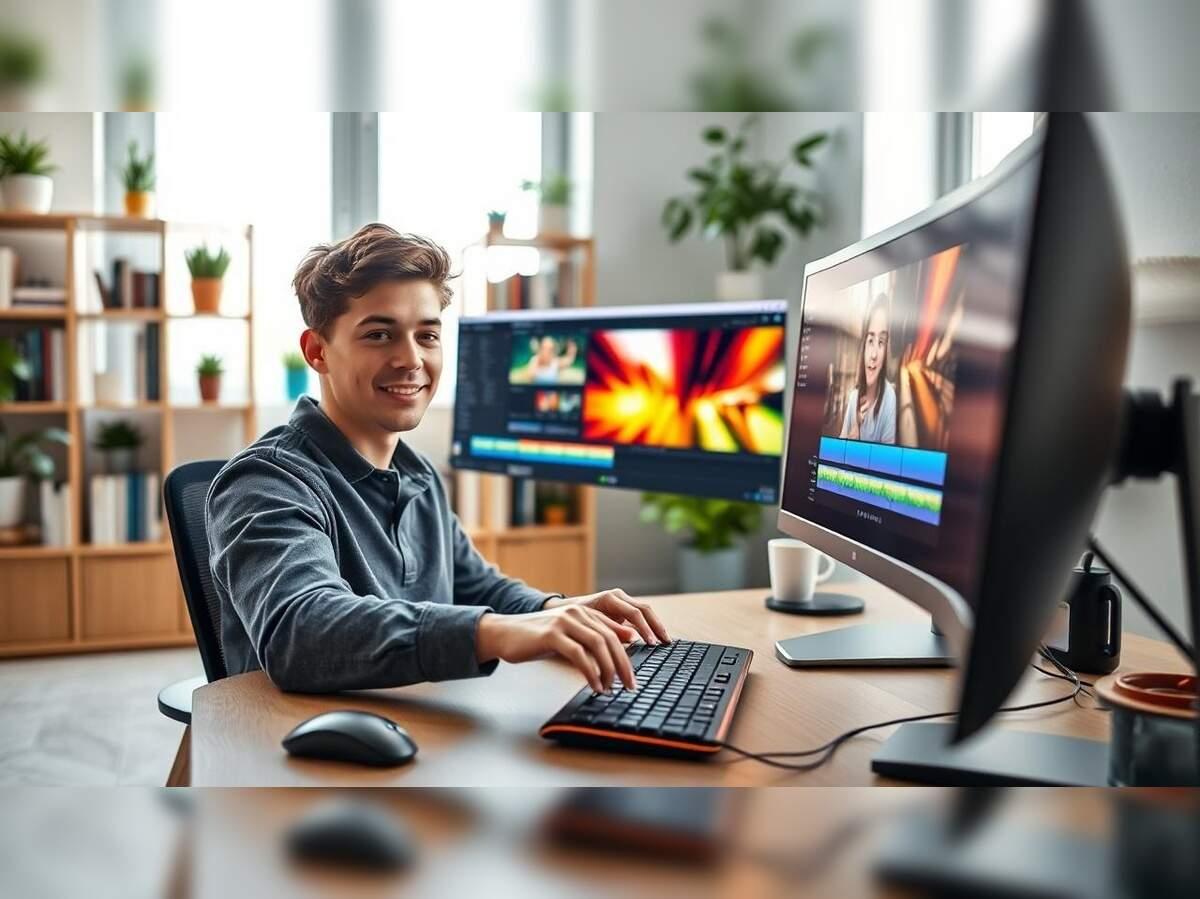
Source: ET
-
Pre-visualization: Lionsgate vice president Michael Burns highlighted the potential of using AI to create animated, family-friendly versions of existing franchises like "John Wick" or "Hunger Games"
1
2
. -
Cost-effective production: AI enables the creation of complex scenes, such as "10,000 soldiers in a snowstorm," which previously would have cost millions to pre-visualize
1
. -
Full AI-generated films: October 2025 saw the release of "Where the Robots Grow," the first AI feature film without live-action footage
1
.
Industry Reactions and Concerns
The rapid adoption of AI in filmmaking has elicited mixed reactions:
-
Embracing the technology: Startup Staircase Studio plans to produce 7-8 AI-generated films annually for under $500,000 each
1
2
. -
Resistance: Some, like Andrew White of Indie Studios, refuse to adopt AI, believing it compromises the creative process
1
. -
Ethical concerns: Students and industry professionals worry about AI's energy consumption, use of original works for training, and potential social impact
1
2
.
Related Stories
The Future of AI in Filmmaking
Despite resistance, the integration of AI in filmmaking seems inevitable. Elizabeth Strickler from Georgia State University compares refusing AI to "having a business without having the internet"
1
2
.Runway's founders are already looking beyond current applications, considering expansion into augmented and virtual reality, including the creation of a metaverse for film production
1
2
.Implications for the Creative Industry
The rise of AI in video generation is expected to:
-
Democratize content creation, allowing more artists to reach significant audiences
1
. -
Challenge Hollywood's traditional role as the arbiter of creation and taste
1
.
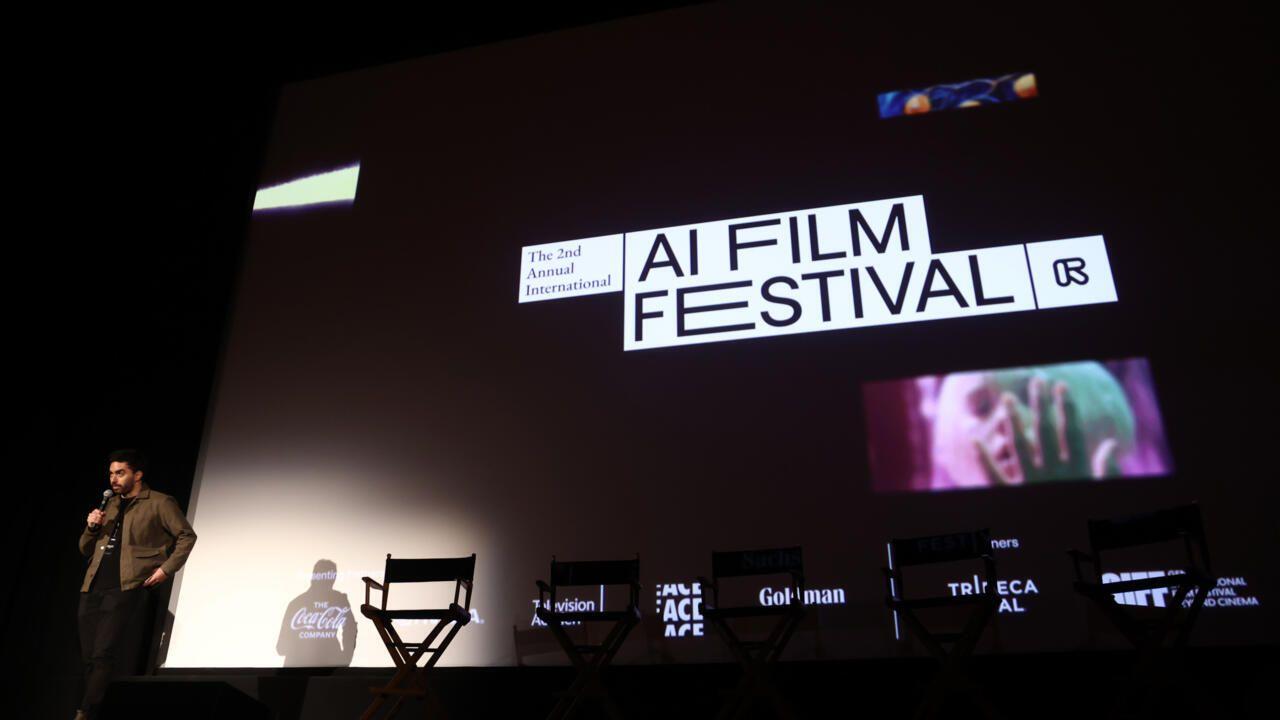
Source: France 24
- Enable creators to stay closer to their artistic vision through unlimited revisions
1
2
.
As the technology continues to evolve, the ultimate goal, according to Runway's creative director Jamie Umpherson, is "to see what artists do with technology"
1
2
, suggesting that the most exciting applications of AI in video creation may yet to be discovered.References
Summarized by
Navi
Related Stories
Hollywood's AI Revolution: From Digital Doubles to Full-Length Films
04 Nov 2025•Entertainment and Society
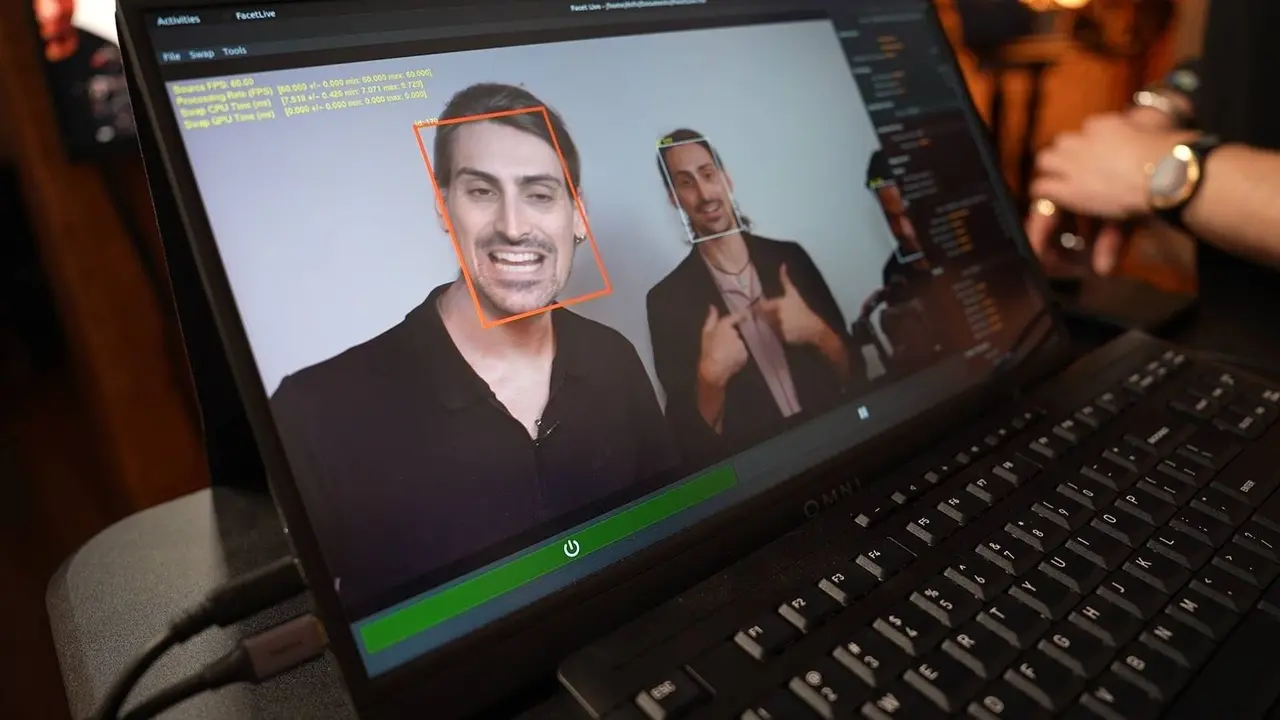
Hollywood's AI Embrace: A Double-Edged Sword for the Film Industry
30 Jun 2025•Technology
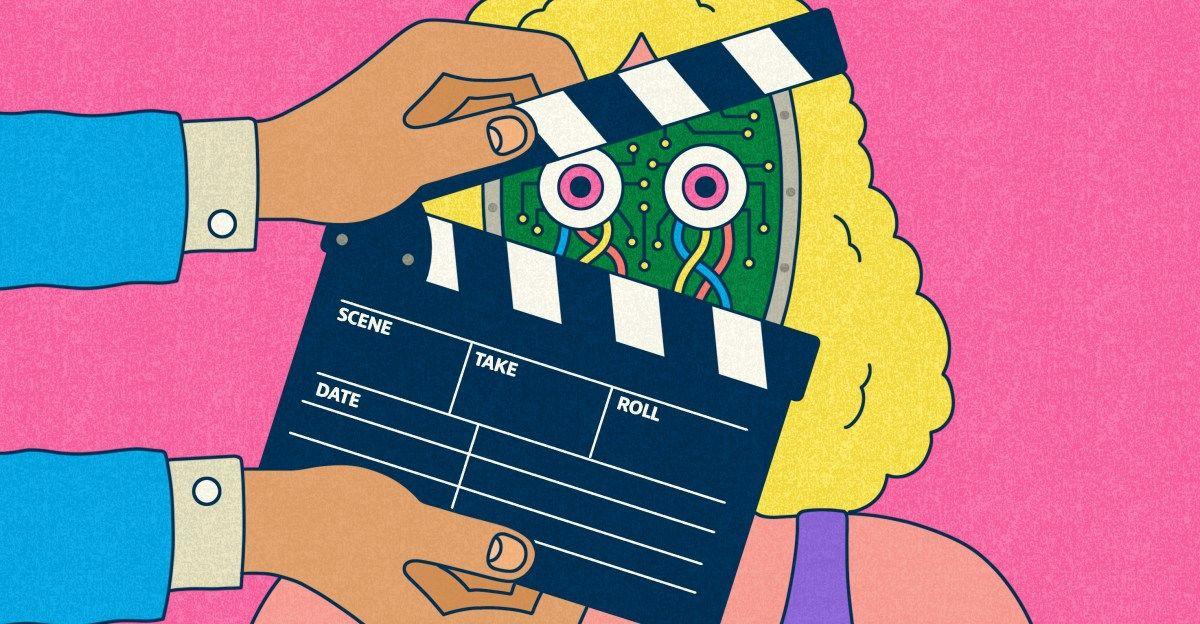
ByteDance Faces Hollywood Backlash After Seedance 2.0 Creates Unauthorized Celebrity Deepfakes
13 Feb 2026•Technology

Recent Highlights
1
ByteDance Faces Hollywood Backlash After Seedance 2.0 Creates Unauthorized Celebrity Deepfakes
Technology

2
Microsoft AI chief predicts artificial intelligence will automate most white-collar jobs in 18 months
Business and Economy

3
Google reports state-sponsored hackers exploit Gemini AI across all stages of cyberattacks
Technology


